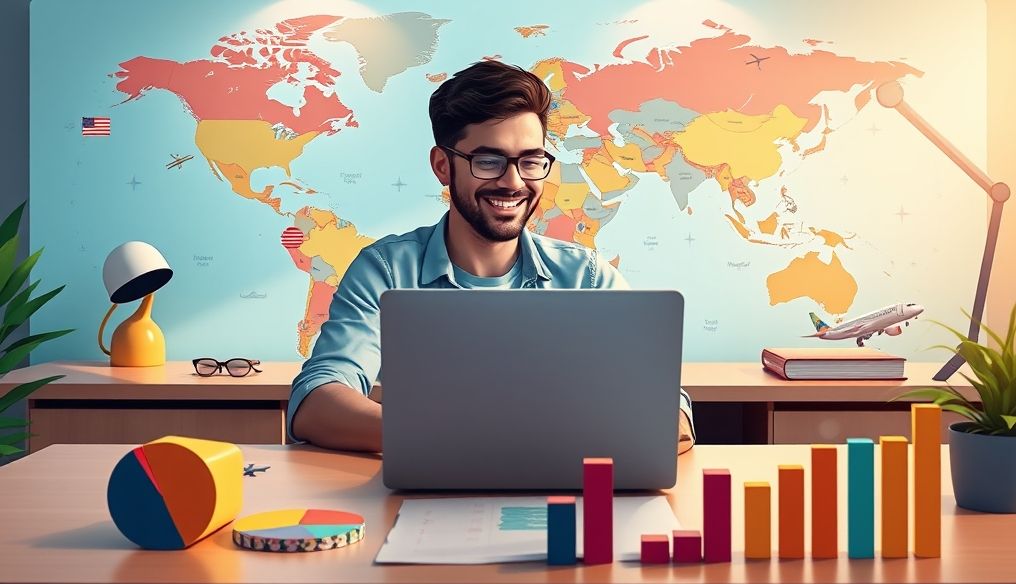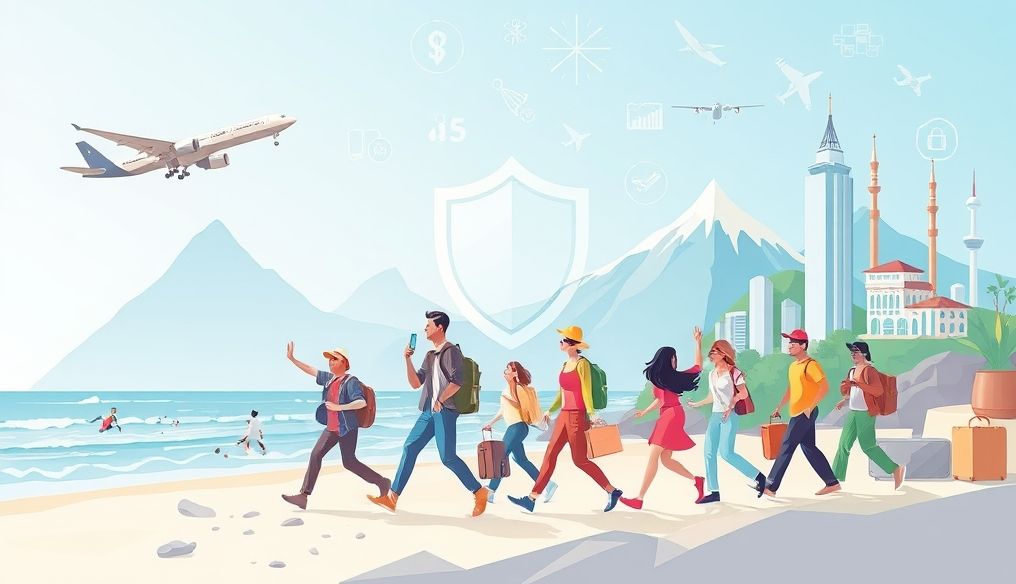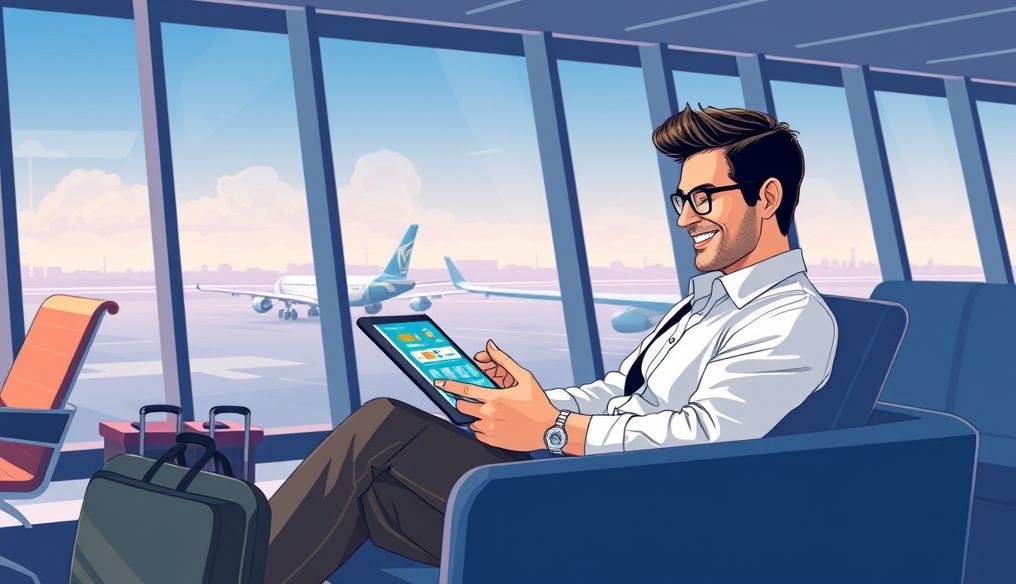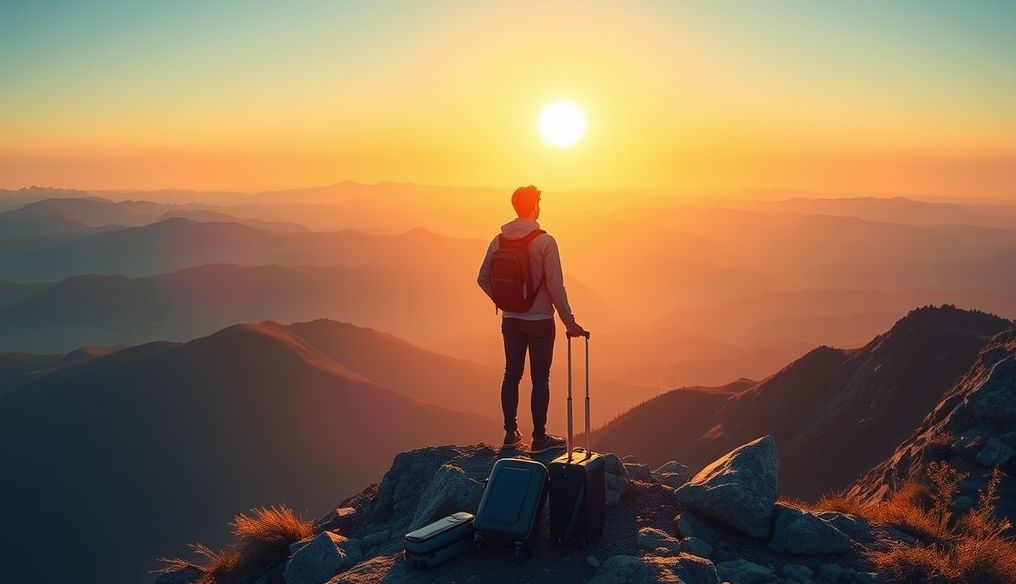Is Traveling Alone Safe? Tips for Solo Travelers
Traveling alone represents a unique experience, offering freedom and independence unmatched by any group trip. You can choose your destination, plan your route, and discover the world at your own pace. However, the question often arises: Is traveling alone safe?
The answer isn't a straightforward yes or no. Safety in solo travel depends on several factors, including your chosen destination, your preparedness and planning for the trip, and the precautions you take. In this article, we will explore the various aspects of safety in solo travel and provide practical tips to ensure a safe and enjoyable journey.
1. Choosing the Right Destination
The first and most important step in planning a safe solo trip is choosing the right destination. Some countries and cities are considered safer for solo travelers than others. When choosing your destination, consider the following factors:
- Crime Rate: Research the crime rates in the destination you are considering. You can consult travel reports issued by governments or international organizations, or read experiences of other travelers.
- Political Stability: Avoid areas experiencing political unrest or armed conflicts.
- Infrastructure: Ensure the destination has good infrastructure, including reliable transportation, efficient emergency services, and available communications.
- Local Customs: Learn about local customs and traditions, and respect them. Avoid wearing provocative clothing or engaging in actions that may be considered inappropriate.
Safe Destinations for Solo Travelers
Some European countries, such as Switzerland, Norway, and Iceland, are among the safest destinations for solo travelers. These countries have low crime rates, political stability, and excellent infrastructure. Countries like Japan and Singapore are also considered very safe.
2. Pre-Trip Planning
Pre-trip planning is key to safety. The more prepared you are, the less likely you are to encounter problems. Here are some tips for pre-trip planning:
- Book Accommodation in Advance: Choose hotels or hostels with a good reputation and high ratings. Read reviews carefully and look for places recommended by other solo travelers.
- Plan Your Route: Identify the places you want to visit and plan how to get there. Use Google Maps or other navigation apps to identify safe and reliable routes.
- Tell Someone About Your Plans: Share your travel plans with a friend or family member. Tell them about your destination, travel dates, and accommodations. Keep in regular contact with them during your trip.
- Get Travel Insurance: Travel insurance is essential to protect you in case of an emergency, such as illness, accidents, or lost luggage. Make sure the insurance covers all the activities you plan to do.
- Copies of Important Documents: Keep digital and printed copies of your passport, visa, airline tickets, and insurance documents. Store the digital copies in a secure place online, such as a cloud storage service.
3. Maintaining Environmental Awareness
One of the most important aspects of safety in solo travel is maintaining environmental awareness. Always be aware of your surroundings and do not be distracted by your phone or music. Pay attention to people approaching you, and do not hesitate to move away if you feel uncomfortable.
Tips for Increasing Environmental Awareness
- Avoid Walking Alone at Night in Unpopulated Areas: If you must walk at night, choose well-lit and crowded routes.
- Do Not Trust Strangers Easily: Be wary of people who approach you and offer help or friendship, especially if they seem suspicious.
- Beware of Pickpockets: Keep your valuables close to you and avoid carrying a lot of cash. Use an anti-theft bag or money belt to hide your money and jewelry.
- Learn Some Basic Phrases in the Local Language: Knowing some basic phrases in the local language can help you communicate with locals and ask for help in an emergency.
4. Using Safe Transportation
Choosing safe transportation is crucial to protect yourself from accidents and crimes. Avoid using unlicensed taxis or crowded public transportation at night. Use reputable ride-sharing services, such as Uber or Lyft, or rent a car from a reliable rental company.
Tips for Using Transportation Safely
- Check the Driver's Identity: Before getting into a taxi or ride-sharing car, make sure the driver is who you expect. Check the car's license plate and the driver's name.
- Share Your Trip Details with a Friend: When using ride-sharing services, share your trip details with a friend or family member.
- Sit in the Back Seat: When using a taxi or ride-sharing car, sit in the back seat to reduce the risk of assault.
- Do Not Drink Alcohol or Use Drugs Before or During Transportation: Alcohol and drugs can impair your judgment and make you more vulnerable to danger.
5. Connecting with Others
Traveling alone does not mean being lonely. Connecting with others can help you get support and advice, and make you feel safer. Join travel groups online, or participate in social activities organized by hotels or hostels. Talk to locals and ask them for advice on places to visit and things to do.
Tips for Connecting with Others Safely
- Be Careful About Sharing Your Personal Information: Do not share your personal information, such as your address or phone number, with strangers.
- Meet Others in Public Places: If you plan to meet someone you met online, meet them in a crowded public place.
- Listen to Your Gut: If you feel uncomfortable with someone, move away from them.
6. Using Technology to Your Advantage
Technology can be a powerful tool to ensure your safety while traveling alone. Use your smartphone to download security apps, such as location tracking apps and emergency apps. Activate emergency services on your phone and learn how to use them in case of an emergency.
Useful Apps for Solo Travelers
- Google Maps: Use Google Maps to identify safe and reliable routes, and find nearby places you need, such as hospitals and police stations.
- Emergency Apps: Download emergency apps that can contact local emergency services quickly and easily.
- Location Tracking Apps: Use location tracking apps to let your friends or family know where you are.
- Translation Apps: Download translation apps that can help you communicate with locals.
7. Trusting Your Gut
Finally, the most important tip for any solo traveler is to trust your gut. If you feel uncomfortable in a situation, move away from it. If you feel that someone is suspicious, avoid them. Your intuition is often correct, and listening to it can save you from a lot of trouble.
Traveling alone can be a wonderful and rewarding experience. By following these tips, you can minimize the risks and enjoy a safe and enjoyable trip.
8. Dealing with Difficult Situations
Even with careful planning, you may encounter some difficult situations while traveling alone. Here are some tips for dealing with these situations:
- Getting Lost: If you get lost, ask for help from a trusted person, such as a store employee or a police officer. Use Google Maps to locate yourself.
- Illness: If you get sick, seek medical help immediately. Find the nearest hospital or clinic and contact your insurance company.
- Theft: If you are robbed, report it to the police immediately. Contact your insurance company and cancel your credit cards.
- Harassment: If you are harassed, move away from the situation immediately. Seek help from a trusted person, such as a hotel employee or a police officer.
9. Financial Preparedness
It is essential to be financially prepared for any emergency while traveling. Carry multiple credit cards and a sufficient amount of cash. Inform your bank about your travel plans so that your credit cards are not frozen. Keep some money in a safe place separate from your wallet.
10. Enjoying the Trip
After all this planning and precautions, remember to enjoy your trip! Traveling alone is a great opportunity to discover yourself and the world around you. Be open to new experiences, connect with locals, and enjoy the freedom and independence that solo travel offers.




